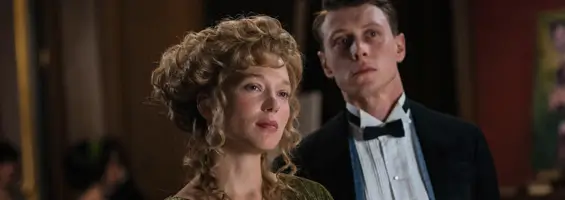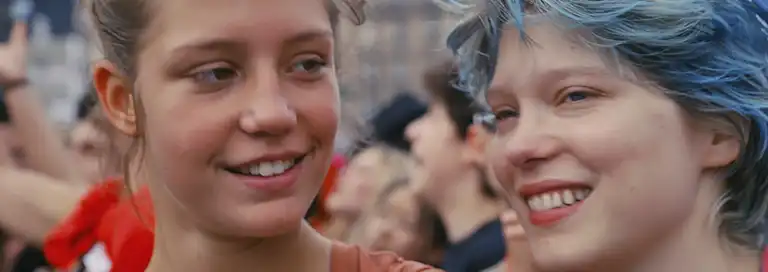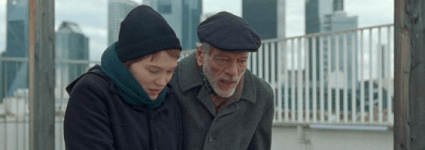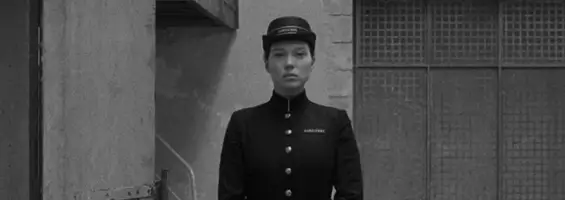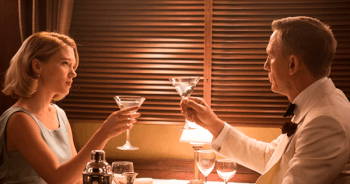Directed by Bertrand Bonello (Zombi Child), The Beast is a French sci-fi epic with an ambitious premise that plays with Artificial Intelligence and the idea of inherited trauma across different lives. Set in a stoic society in 2044, the plot follows a woman (Léa Seydoux) who turns to AI to explore her past lives and "purify her DNA" of affections and traumas. She reconnects with her great love from various eras (George MacKay) and must fight to change the catastrophic cyclical fate of their relationship. Told through three different eras (1910, 2014, and 2044), it is a large-scale narrative that demands careful attention, but rewards it with rich reflections and strong performances.
It can be said that Blue is the Warmest Color (La Vie D'Adèle) is one of the most controversial and provocative films of recent times. Controversial for the director, Abdellatif Kechiche, was accused by the protagonists Adèle Exarchopoulos and Léa Seydoux of being forced to film intense sex scenes for hours without protection or pauses. And provocative because the film, winner of the Palme d'Or of Cannes in 2013, brings a story outside the norms about an overwhelming romance between two girls. Going beyond the merits of Kechiche's direction, the film ends up being of the two actresses, who carry all the transformations and complexities of their characters on their backs. It is an intense movie, with strong and explicit moments, but which ends up bringing a good story of relationships and discoveries.
If you've watched other films by filmmaker Wes Anderson - such as Fantastic Mr. Fox, Isle of Dogs and Moonrise Kingdom - you know exactly what to expect from The French Dispatch: extravagant lyricism, refined humor, polished aesthetics, beautiful cinematography, a story based on subtleties, and lots and lots of eccentricity. This time, the director and screenwriter makes a great homage to literary journalism, with the publication 'The French Dispatch' clearly inspired by the magazine 'The New Yorker'. Thus, we follow the gaze of American journalists in the fictional French city of Ennui - all inspired by important names in the North American press, such as Harold Ross, Joseph Mitchell and James Baldwin. In anthology format, the feature film seeks to address the most diverse topics, such as the value and interpretation of art, human relationships, love, sex, the search for youth for revolution and the clash with conservatism, gentrification and even journalistic neutrality. The cast is stellar, including names like Bill Murray, Owen Wilson, Elisabeth Moss, Tilda Swinton, Benicio del Toro, Adrien Brody, Léa Seydoux, Frances McDormand, Timothée Chalamet, Christoph Waltz, Jeffrey Wright, Mathieu Amalric, Liev Schreiber, Edward Norton, Willem Dafoe and Saoirse Ronan - all in major or minor roles, some appearing for just a few seconds. It is certainly not the most accessible film by Wes Anderson, requiring the viewer, in some way, to orbit or have a taste for the themes brought to the screen, in addition to an affection for the director's style. If that is the case, you will certainly find a love letter to literary journalism and art, including cinematography.
After settling a legal dispute with the heirs of screenwriter and producer Kevin McClory, Eon Productions can once again use the fictional criminal organization Spectre - which, in the past, had been James Bond's greatest enemies. Thus, 'Spectre' brings a plot that puts the villains as the true responsible for the events of 'Casino Royale' and 'Quantum of Solace', in a story that goes even deeper into Bond's past than 'Skyfall'. Unfortunately, the fourth installment of the franchise with Daniel Craig does not work as well as its predecessor, much because it invests excessively in the "mystery box" resource: a screenplay tool that builds an entire story (and marketing) to present a surprising revelation at the end of the plot. The problem here is that this "mysterious box" simply does not work: it does nothing for the plot and the eventual viewer, pleasing only the most aficionados of the character. Still, there are great action scenes, good direction by Sam Mendes and Christoph Waltz bringing all his class as the villain of the story.
